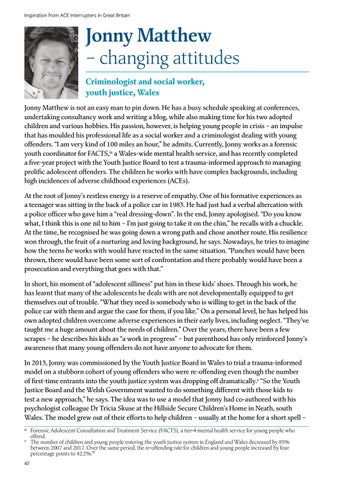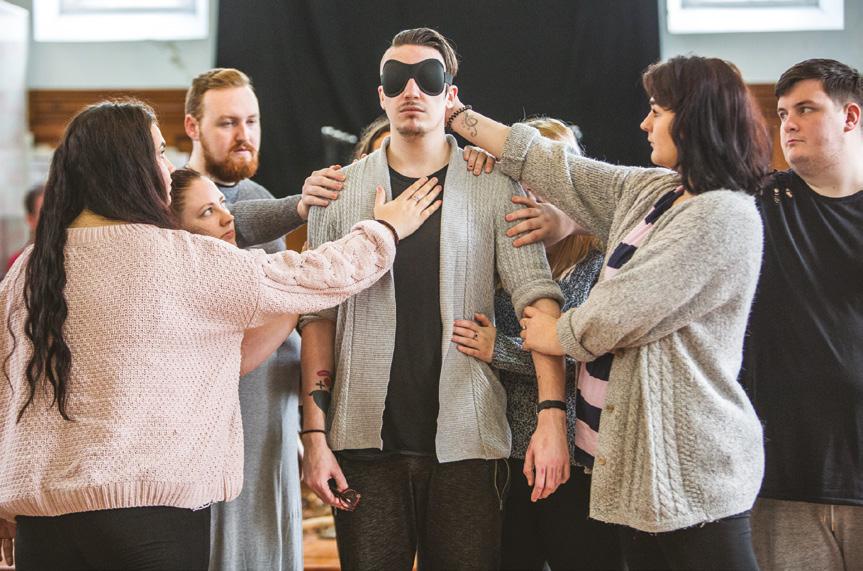Inspiration from ACE Interrupters in Great Britain
Jonny Matthew – changing attitudes Criminologist and social worker, youth justice, Wales Jonny Matthew is not an easy man to pin down. He has a busy schedule speaking at conferences, undertaking consultancy work and writing a blog, while also making time for his two adopted children and various hobbies. His passion, however, is helping young people in crisis – an impulse that has moulded his professional life as a social worker and a criminologist dealing with young offenders. “I am very kind of 100 miles an hour,” he admits. Currently, Jonny works as a forensic youth coordinator for FACTS,ix a Wales-wide mental health service, and has recently completed a five-year project with the Youth Justice Board to test a trauma-informed approach to managing prolific adolescent offenders. The children he works with have complex backgrounds, including high incidences of adverse childhood experiences (ACEs). At the root of Jonny’s restless energy is a reserve of empathy. One of his formative experiences as a teenager was sitting in the back of a police car in 1983. He had just had a verbal altercation with a police officer who gave him a “real dressing-down”. In the end, Jonny apologised. “Do you know what, I think this is one nil to him – I’m just going to take it on the chin,” he recalls with a chuckle. At the time, he recognised he was going down a wrong path and chose another route. His resilience won through, the fruit of a nurturing and loving background, he says. Nowadays, he tries to imagine how the teens he works with would have reacted in the same situation. “Punches would have been thrown, there would have been some sort of confrontation and there probably would have been a prosecution and everything that goes with that.” In short, his moment of “adolescent silliness” put him in these kids’ shoes. Through his work, he has learnt that many of the adolescents he deals with are not developmentally equipped to get themselves out of trouble. “What they need is somebody who is willing to get in the back of the police car with them and argue the case for them, if you like.” On a personal level, he has helped his own adopted children overcome adverse experiences in their early lives, including neglect. “They’ve taught me a huge amount about the needs of children.” Over the years, there have been a few scrapes – he describes his kids as “a work in progress” – but parenthood has only reinforced Jonny’s awareness that many young offenders do not have anyone to advocate for them. In 2013, Jonny was commissioned by the Youth Justice Board in Wales to trial a trauma-informed model on a stubborn cohort of young offenders who were re-offending even though the number of first-time entrants into the youth justice system was dropping off dramatically.x “So the Youth Justice Board and the Welsh Government wanted to do something different with those kids to test a new approach,” he says. The idea was to use a model that Jonny had co-authored with his psychologist colleague Dr Tricia Skuse at the Hillside Secure Children’s Home in Neath, south Wales. The model grew out of their efforts to help children – usually at the home for a short spell – Forensic Adolescent Consultation and Treatment Service (FACTS), a tier-4 mental health service for young people who offend. x The number of children and young people entering the youth justice system in England and Wales decreased by 85% between 2007 and 2017. Over the same period, the re-offending rate for children and young people increased by four percentage points to 42.2%.37 ix
42





